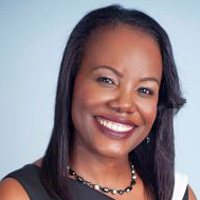Flying Solo: 5 Financial Strategies Every Single Woman Should Know
Are you doing all that you can to ensure your financial future will be secure? See if you are on track, or whether there’s an area (or two) where you could be falling short.


Profit and prosper with the best of Kiplinger's advice on investing, taxes, retirement, personal finance and much more. Delivered daily. Enter your email in the box and click Sign Me Up.
You are now subscribed
Your newsletter sign-up was successful
Want to add more newsletters?

Delivered daily
Kiplinger Today
Profit and prosper with the best of Kiplinger's advice on investing, taxes, retirement, personal finance and much more delivered daily. Smart money moves start here.

Sent five days a week
Kiplinger A Step Ahead
Get practical help to make better financial decisions in your everyday life, from spending to savings on top deals.

Delivered daily
Kiplinger Closing Bell
Get today's biggest financial and investing headlines delivered to your inbox every day the U.S. stock market is open.

Sent twice a week
Kiplinger Adviser Intel
Financial pros across the country share best practices and fresh tactics to preserve and grow your wealth.

Delivered weekly
Kiplinger Tax Tips
Trim your federal and state tax bills with practical tax-planning and tax-cutting strategies.

Sent twice a week
Kiplinger Retirement Tips
Your twice-a-week guide to planning and enjoying a financially secure and richly rewarding retirement

Sent bimonthly.
Kiplinger Adviser Angle
Insights for advisers, wealth managers and other financial professionals.

Sent twice a week
Kiplinger Investing Weekly
Your twice-a-week roundup of promising stocks, funds, companies and industries you should consider, ones you should avoid, and why.

Sent weekly for six weeks
Kiplinger Invest for Retirement
Your step-by-step six-part series on how to invest for retirement, from devising a successful strategy to exactly which investments to choose.
Have you ever thought “I’m single. Do I need to do anything differently with my finances?”
- Do you feel the pressure or weight of managing your finances on your own?
- Are you concerned about having enough money to take care of yourself?
- Are you too busy or just haven’t gotten around to thinking about the “big picture” of your finances?
You are not alone. Today, there are more women living independently now than ever before in the U.S. In fact, the Pew Research Center (2016) reported that 69% of women are living without a spouse. Moreover, at some point in their lifetime, women will find themselves on their own, which means they will be the sole financial decision-maker for their household (CNBC, 2018).
These trends, which do not appear to be reversing, make it clear that single women face special challenges when planning for the future. So, if you have never been married, are divorced, or have lost a spouse, it’s imperative that you plan ahead for your personal and financial security. What follows are a few key strategies to help you safeguard your financial future and ultimately provide peace of mind.
From just $107.88 $24.99 for Kiplinger Personal Finance
Become a smarter, better informed investor. Subscribe from just $107.88 $24.99, plus get up to 4 Special Issues

Sign up for Kiplinger’s Free Newsletters
Profit and prosper with the best of expert advice on investing, taxes, retirement, personal finance and more - straight to your e-mail.
Profit and prosper with the best of expert advice - straight to your e-mail.
No. 1: Give yourself a Cash Cushion
For many, it’s not a matter of whether you’ll find yourself in need of an emergency fund, but when. The general rule of thumb for an emergency account is to save somewhere between three and six months’ worth of take-home pay. However, I recommend six to nine months’ worth or more for single women. Why? It may take single women longer to find that next job or recover from a crisis, which is problematic if they have no other source of income to fall back or rely on.
No. 2: Make Investing a Habit
Women have longer life expectancies than men but tend to have fewer retirement savings to serve as a nest egg for their future. So, when it comes to investing, begin with your retirement contributions first. Make sure that you are at a minimum contributing enough to get the employer match, if offered – otherwise, you are leaving free money on the table! If you are contributing enough to get the match and can contribute more, consider investing in a Roth 401(k) or Roth 403(b) if your employer offers it. Doing so can give you an income source that won’t be taxed when you withdraw it at retirement. Also consider a Roth IRA or a Health Savings Account (HSA). An HSA allows you to invest with pre-tax money and withdraw funds tax-free to cover qualified healthcare expenses.
If you have additional discretionary income, start investing for other goals, such as starting a business, traveling or just plain building your wealth. The sooner you can get to this point, the better thanks to the magic of compounding interest – meaning, earning money on top of the money you earn.
No. 3: Prepare for the Unexpected
A commonly overlooked financial concern for ALL women is planning for unexpected life events that could derail your finances. These include things like sudden death, disability, a long-term illness, or a terminal illness – all of which demand serious financial decision-making. Because more and more women are engaged in high-paying careers and are therefore earning more money, they tend to own more assets which means they have more at stake financially when faced with unexpected events. So, it’s important to know what your options are so that you won’t be blindsided in the future.
What are the options? Simply put, it’s insurance protection, such as income replacement or disability insurance, life insurance and long-term care insurance. In the case of long-term care insurance for example, you may not have a friend or family member to help you if your health declines due to normal aging or medical issues, which can result in less-than-optimal care when it’s most needed later in life.
Keep in mind that some of these coverages are offered as benefits by your employer. Make sure you take advantage of them if provided. If you already have these in place, make sure you have adequate protection, meaning review your coverage to ensure you have enough to meet your potential needs. If not, consider increasing your coverage.
No. 4: Get Your Affairs in Order
Another area of personal finance that many single women (and men) ignore or postpone is getting their affairs in order. Why? They assume that estate planning is for married couples because couples have spouses who rely on each other or because couples need to make contingency plans for the care of their minor children. But, to assume that single women do not need to have an estate plan in place is false.
For example, ask yourself these questions: “Who would pay my bills if I became incapacitated?” “Who will make investment decisions on my behalf?” “Who will make health decisions or confer with doctors if I am unable to voice an opinion?” These are roles that normally fall to spouses. However, an estate plan enables you to provide for your own protection and ultimately lay the groundwork for allowing someone else to make financial and medical decisions on our behalf if you are not able to do so.
So, please don’t leave yourself, family or friends stranded! Add beneficiaries to all of your financial accounts. Make your wishes clear on your health decisions and ensure that your administrative affairs will be under control in the future by acting now – while you are still fully functioning and competent – to designate someone to handle them for you if you can’t at some point.
No. 5: Improve Your Financial Acumen
Make a commitment to improve your financial knowledge. With the plethora of online resources available, there’s really no reason not to – you simply need to carve out the time to do it. You can start by asking yourself “What financial information would I like to know?” Try identifying two or three financial topics that you’d like to learn more about and make the commitment to educate yourself on those topics. If you want to learn about financial terminology, consider reading online encyclopedias, such as Investopedia. Reading books and finding financial applications on your smart devices can also help you increase your financial acumen.
In sum, as single women, the buck starts and stops with you. That’s why it’s crucial for you to educate yourself about your finances and make wise financial choices. Take the steps necessary to develop an effective plan or strategy(ies) today to ensure that you will have a better tomorrow. Notice, I said today, which means don’t procrastinate. Instead, make the choice to feel empowered by your financial future!
Profit and prosper with the best of Kiplinger's advice on investing, taxes, retirement, personal finance and much more. Delivered daily. Enter your email in the box and click Sign Me Up.

Derenda King is a CERTIFIED FINANCIAL PLANNER™ professional, Certified Student Loan Professional (CSLP®) and financial adviser with Urban Wealth Management. She is also the owner of Collegiate Financial Coach, LLC, which provides financial coaching to families with college-bound students who need assistance with developing a college funding plan and to individuals seeking strategies for repaying their student loan debt. Prior to becoming an adviser, Derenda worked in higher education, and she is still an educator at heart. She provides comprehensive, holistic financial planning services, with an added focus on late-stage college planning, and is passionate about educating, empowering and equipping individuals with the knowledge to make more informed decisions about their money.
-
 The New Reality for Entertainment
The New Reality for EntertainmentThe Kiplinger Letter The entertainment industry is shifting as movie and TV companies face fierce competition, fight for attention and cope with artificial intelligence.
-
 Stocks Sink With Alphabet, Bitcoin: Stock Market Today
Stocks Sink With Alphabet, Bitcoin: Stock Market TodayA dismal round of jobs data did little to lift sentiment on Thursday.
-
 Betting on Super Bowl 2026? New IRS Tax Changes Could Cost You
Betting on Super Bowl 2026? New IRS Tax Changes Could Cost YouTaxable Income When Super Bowl LX hype fades, some fans may be surprised to learn that sports betting tax rules have shifted.
-
 The 4 Estate Planning Documents Every High-Net-Worth Family Needs (Not Just a Will)
The 4 Estate Planning Documents Every High-Net-Worth Family Needs (Not Just a Will)The key to successful estate planning for HNW families isn't just drafting these four documents, but ensuring they're current and immediately accessible.
-
 Love and Legacy: What Couples Rarely Talk About (But Should)
Love and Legacy: What Couples Rarely Talk About (But Should)Couples who talk openly about finances, including estate planning, are more likely to head into retirement joyfully. How can you get the conversation going?
-
 How to Get the Fair Value for Your Shares When You Are in the Minority Vote on a Sale of Substantially All Corporate Assets
How to Get the Fair Value for Your Shares When You Are in the Minority Vote on a Sale of Substantially All Corporate AssetsWhen a sale of substantially all corporate assets is approved by majority vote, shareholders on the losing side of the vote should understand their rights.
-
 How to Add a Pet Trust to Your Estate Plan: Don't Leave Your Best Friend to Chance
How to Add a Pet Trust to Your Estate Plan: Don't Leave Your Best Friend to ChanceAdding a pet trust to your estate plan can ensure your pets are properly looked after when you're no longer able to care for them. This is how to go about it.
-
 Want to Avoid Leaving Chaos in Your Wake? Don't Leave Behind an Outdated Estate Plan
Want to Avoid Leaving Chaos in Your Wake? Don't Leave Behind an Outdated Estate PlanAn outdated or incomplete estate plan could cause confusion for those handling your affairs at a difficult time. This guide highlights what to update and when.
-
 I'm a Financial Adviser: This Is Why I Became an Advocate for Fee-Only Financial Advice
I'm a Financial Adviser: This Is Why I Became an Advocate for Fee-Only Financial AdviceCan financial advisers who earn commissions on product sales give clients the best advice? For one professional, changing track was the clear choice.
-
 I Met With 100-Plus Advisers to Develop This Road Map for Adopting AI
I Met With 100-Plus Advisers to Develop This Road Map for Adopting AIFor financial advisers eager to embrace AI but unsure where to start, this road map will help you integrate the right tools and safeguards into your work.
-
 The Referral Revolution: How to Grow Your Business With Trust
The Referral Revolution: How to Grow Your Business With TrustYou can attract ideal clients by focusing on value and leveraging your current relationships to create a referral-based practice.